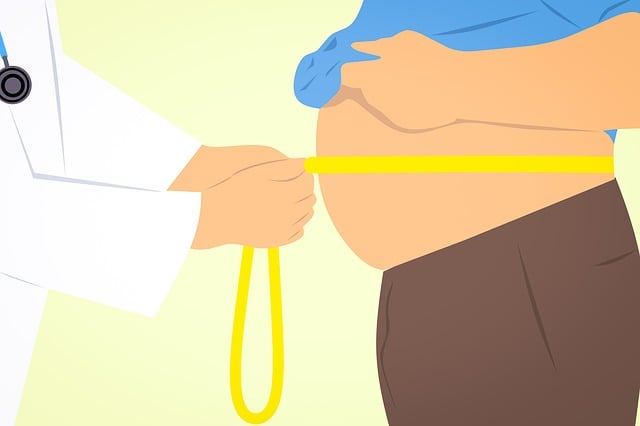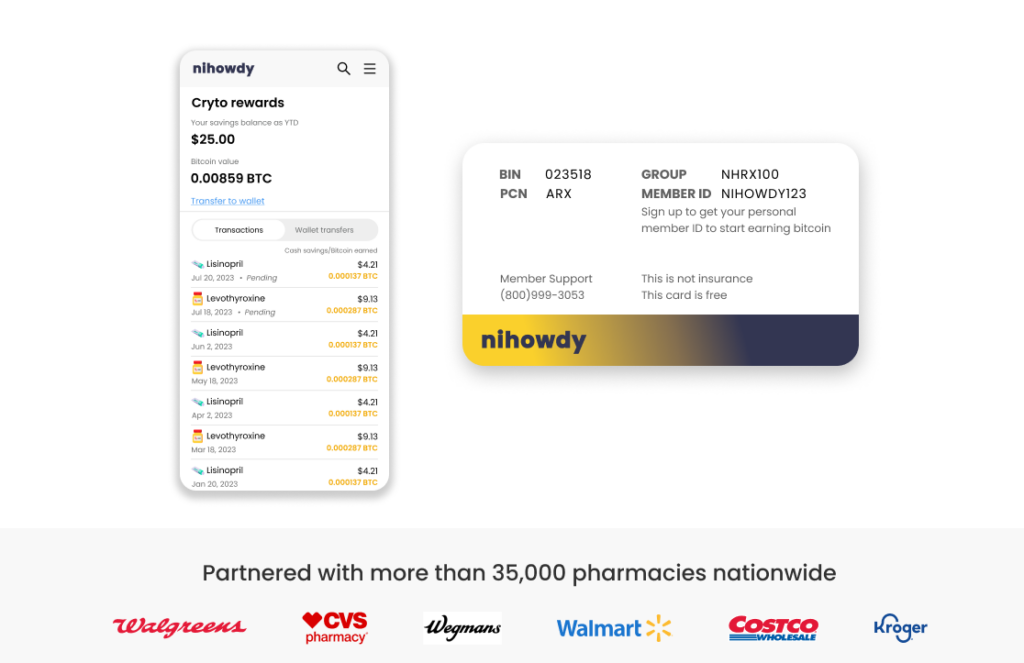Mounjaro vs Wegovy: A Comprehensive Comparison for Your Weight Loss Journey


Are you considering Mounjaro vs Wegovy for weight loss? These different GLP-1 receptor-influencing drugs come with their own set of effects, costs, and patient experiences. We lay out a side-by-side comparison so you can decide which suits your health goals best.
Key Takeaways
Mounjaro acts on both GIP and GLP-1 receptors offering potential weight management benefits over Wegovy, which targets only GLP-1 receptors; both have different FDA-approved uses.
Clinical trials show significant weight loss with both medications, but patient experiences vary; regular exercise and diet are crucial to enhance effectiveness.
Both Mounjaro and Wegovy have serious health risks including a possible thyroid cancer risk; they are costly, and insurance coverage for weight loss medications is limited.
Mounjaro vs Wegovy: Unveiling the Differences

Beginning with the fundamental distinctions, it’s important to examine what sets Mounjaro apart from Wegovy in chronic weight management. While both medications activate GLP-1 receptors, which are pivotal for appetite control and insulin release, Mounjaro uniquely targets glucose dependent insulinotropic polypeptide (GIP) along with GLP-1 receptors, potentially bestowing a superior benefit in regulating weight compared to Wegovy that influences only GLP-1 receptors.
The FDA-approved uses for wegovy and mounjaro also differ despite their similar mechanisms. Specifically approved for type 2 diabetes treatment is Mounjaro, whereas chronic weight management is the sanctioned use of Wegovy. Notably though, due to its proven efficiency in aiding weight loss, healthcare providers frequently prescribe Mounjaro off-label as a weight management aid.
Administered once weekly through injections by patients themselves—this convenience aligns them well within long-term strategies employed for managing bodyweight effectively.
Mechanism of Action: GLP-1 Receptors and Beyond
The potency of a weight loss drug is contingent upon how it functions within the body. Mounjaro, which contains tirzepatide as its active ingredient, benefits from engaging GIP and GLP-1 receptors in a dual-action approach. This results in controlled appetite, diminished food consumption, and increased fat burning.
Conversely, Wegovy’s action is limited to stimulating only the GLP-1 receptors. This distinction may offer Mounjaro an advantage regarding weight reduction efficiency. Nevertheless, individual responses to these medications can differ significantly. Consulting with a healthcare professional before initiating treatment with any medication is imperative for safe and effective use.
FDA Approval: Indications for Use
It’s vital to recognize the intended uses of Mounjaro and Wegovy, particularly their respective FDA approvals. Specifically, Wegovy has received clearance for chronic weight management among individuals with a BMI of 27 kg/m2 or higher, underpinning its role in sustained weight loss as well as maintenance.
Meanwhile, Mounjaro is officially sanctioned for managing type 2 diabetes, but finds growing adoption off-label for aiding in weight loss within the US. Its popularity stems from empirical data attesting to its capacity for effective weight management. Notably, semaglutide serves as a shared ingredient between Wegovy and Ozempic—a medication designed to tackle diabetes—which Demonstrates the interconnection between therapies aimed at controlling blood sugar levels and those directed towards regulating body weight.
Chronic Weight Management Strategies
Maintaining weight requires a sustained effort that transcends medication use, demanding an integrated approach encompassing nutritional adjustments, physical activity, and changes in daily habits. Mounjaro and Wegovy enhance this multifaceted strategy by providing supplementary means for controlling body weight.
The customization of treatment protocols to suit personal health needs is essential within the scope of weight management services. This includes consideration of unique medical circumstances like blood pressure levels when determining the appropriateness of medications. In conjunction with GLP-1 agonists such as Mounjaro and Wegovy, it’s imperative to engage in consistent resistance training to preserve muscle tissue while shedding pounds.
The Impact on Body Mass Index (BMI) and Body Weight

Understanding the effects of Mounjaro and Wegovy on body mass index (BMI) and overall body weight reveals significant outcomes. Data from clinical trials alongside anecdotal evidence from patients suggest that both drugs are efficacious in decreasing weight significantly, enhancing BMI profiles in the process. Specifically, overweight individuals or those without diabetes who were treated with tirzepatide—the active ingredient found in Mounjaro—averaged a 20.9% decline in their body weight following a 36-week regimen at the highest tolerable dose.
Continuation of tirzepatide for an additional year led to declines in weight by approximately 5.5%, while switching to placebo after this period resulted in participants regaining around 14% of their lost body weight. Underscoring these medications’ sustained treatment necessity for ongoing benefits.
Research encompassing STEP 1. Phase 3 studies have indicated that semaglutide—an essential component within Wegovy—is exceptionally effective when it comes to shedding pounds, outperforming both placebos and weekly doses of semaglutide at only one milligram regarding facilitating reductions in patient’s weights.
Average Weight Loss: Clinical Trial Data

A substantial amount of information on the efficacy of weight loss medications can be gleaned from clinical trial outcomes. For example, Mounjaro has been shown to achieve an average body weight reduction as high as 25,3% over a period of 88 weeks according to these studies. Findings from the SURMOUNT-4 trial indicated that after continuing with tirzepatide treatment for 88 weeks, more than half the participants experienced at least a 25% decrease in their body weight.
On another note, Wegovy is reported through clinical trials data to contribute to around a 15% loss in adult patients’ body weight—a fact which naturally leads people to question how much they might personally lose if using this medication. Zepbound’s users taking its most potent dosage observed their greatest average weight loss reaching up to 18%. These statistics give us quantifiable insight into how effective these drugs can be, while anecdotes and individual accounts add depth by illustrating real-life impacts.
Body Weight Changes: Patient Success Stories

Success stories from patients highlight the transformative role Mounjaro and Wegovy have played in their weight loss endeavors. For instance, a particular patient experienced an impressive drop of 20% in body weight within nine months while using Mounjaro, praising it as revolutionary for their progress.
Similarly, another individual on Wegovy observed continuous weight reduction amounting to 15% over half a year. This person attributed their success to improved control over meal portions thanks to the medication which led them towards more conscious eating patterns. These personal testimonies shine light on what individuals encounter when they incorporate these drugs into daily life and provide encouragement by showcasing relatable experiences for those pursuing comparable goals.
Safety Profile: Side Effects and Warnings
Understanding the safety aspects of any pharmaceutical, including Mounjaro and Wegovy, is crucial. They have typical adverse effects as well as serious health concerns such as a pronounced warning for the risk of thyroid cancer.
The medication may result in severe side effects like:
Inflammation of the pancreas
Low levels of blood sugar (hypoglycemia)
Renal complications
Sudden gallbladder disease
Eye problems inclusive of diabetic retinopathy risks
Danger to fetuses during pregnancy
It’s imperative that individuals using these medications are fully aware of their potential risks and side effects, particularly if they possess personal or familial histories that might heighten susceptibility.
Common Side Effects: What to Expect
Patients taking Mounjaro and Wegovy often experience gastrointestinal side effects such as nausea, abdominal pain, decreased appetite, along with other issues like vomiting, constipation, diarrhea, and indigestion. Typically these adverse effects are temporary and tend to resolve as the patient’s body becomes accustomed to the treatment.
It is crucial that any prolonged or intense side effects should be promptly communicated to a healthcare professional. This includes any signs of allergic reactions which require immediate attention from medical experts for appropriate management.
Serious Health Risks: Understanding the Boxed Warning
Both Mounjaro and Wegovy carry a boxed warning, which is the strictest caution issued by the FDA, highlighting that there may be an elevated risk of developing thyroid cancer. People who have personal or family medical history related to medullary thyroid carcinoma (MTC) are advised against using these drugs.
In experiments conducted on animals, tirzepatide — the active component in Mounjaro — was linked with instances of C-cell tumors in the thyroids of rodents. The applicability of this finding to human subjects has not been definitively established. This emphasizes why it’s crucial for individuals to consult their healthcare provider regarding possible dangers before initiating treatment with any medication.
Financial Considerations: Cost and Insurance Coverage
The cost implications of utilizing weight loss medications are significant and must be taken into account. Unfortunately, most private insurers and government health plans typically exclude coverage for weight-loss drugs, leading to substantial direct expenses for patients who need medications such as Mounjaro and Wegovy.
At present, there are ongoing legislative actions that may alter this situation by expanding the availability of these weight loss medicines to more people through insurance coverage. Nevertheless, if these changes occur, concerns remain about potential constraints and conditions insurance providers might impose on covering weight loss medication.
Price Point: Comparing Drug Costs
When patients lack insurance coverage, the monthly expenses for Mounjaro and Wegovy can exceed $1,000. The price point that individual patients encounter may differ significantly depending on whether they have health insurance or are covering costs directly out-of-pocket. If a patient qualifies for it, their expense burden might be alleviated considerably by insurance benefits specific to Mounjaro.
To offset medication expenditures beyond what is covered by insurance, there are alternative strategies available. Eli Lilly contributes to affordable access through a savings program which offers a discount card reducing the cost of either one-month or three-month supplies of Mounjaro to $25. Prescription discounts from sources such as NiHowdy’s prescription discount card present another viable route for achieving financial relief with these medications.
Maximizing Savings with NiHowdy
NiHowdy provides a top-tier prescription discount card that can significantly reduce the expenses of drugs like Mounjaro and Wegovy. Customers benefit from this. By accumulating up to an extra 3% in Bitcoin with each purchase made using NiHowdy’s discount card.
The incorporation of this distinctive reward system offers customers the dual advantage of slashing their drug costs while earning incentives which have the potential to appreciate over time. Consequently, these gains from NiHowdy’s program could assist not only in mitigating healthcare expenses, but also serve as financial support for other significant life costs.
Personalized Treatment Plans: Consulting Healthcare Providers
Selecting between Mounjaro and Wegovy for weight loss needs is a personalized decision that should involve the expertise of healthcare providers. They can help decide which medication aligns best with personal health objectives and medical history, ensuring an individualized treatment plan.
Consistent communication with healthcare professionals after starting on either medication ensures careful monitoring of progress and allows any necessary modifications to be made to the regimen. This bespoke strategy not only aims at managing symptoms like weight gain but also targets underlying issues including high blood pressure, promoting overall well-being through tailored care.
Tailoring Your Weight Management Mounjaro or Wegovy
When developing a treatment plan that includes Mounjaro or Wegovy, healthcare providers take into account the individual body weight objectives of each patient. Should the anticipated weight loss not occur even after receiving the complete dose for 3 to 6 months, adjustments to this regimen may be recommended by healthcare professionals.
Sustainable weight management is heavily dependent on adhering to healthy lifestyle practices, especially once one ceases using weight loss medications such as Mounjaro or Wegovy. This underscores how crucial these habits are in ensuring ongoing success with managing body weight and preventing any potential regain of lost weight.
The Role of Medical Conditions in Decision Making
The presence of medical conditions is a determining factor when choosing between Mounjaro and Wegovy. Specifically, the initiation of treatment with Mounjaro can impact how oral contraceptives are absorbed by the body. Hence, it’s advised to utilize non-oral forms of birth control for a duration of four weeks after beginning the regimen or following any increase in dosage.
Considering potential drug interactions and existing health issues is critical when selecting either Mounjaro or Wegovy. As such, an extensive medical assessment must be conducted prior to commencing these medications to ensure patient safety and effectiveness of treatment.
Navigating the Weight Loss Journey: Lifestyle Factors

Embarking on a weight loss journey involves more than simply administering medication or receiving injections. It necessitates lifestyle modifications encompassing dietary adjustments, physical activity enhancement, and habit transformation. Healthcare providers specializing in weight management adopt an integrative strategy tailored to individual needs by offering advice on various aspects such as:
Dietary habits
Physical exercise programs
Behavioral changes
Managing stress
Adopting this holistic method guarantees that the pursuit of weight loss transcends mere pound-shedding. The aim is to foster overall health improvement while instilling enduring lifestyle alterations sustainable beyond meeting initial weight loss goals.
Diet and Physical Activity: Essential Components
Maintaining a reduced-calorie diet and consistent physical activity is vital for maximizing the benefits of weight loss drugs. When combined with these lifestyle changes, weight loss medications become significantly more effective.
Altering eating habits and exercise patterns can substantially improve the results achieved through GLP-1 treatments like Wegovy. It’s important to view prescription weight loss medications such as Mounjaro and Wegovy as adjuncts to, rather than replacements for, healthy dietary practices and regular physical exertion.
Overcoming Weight Gain Challenges
Overcoming weight gain challenges and shedding excess weight involves maintaining healthy lifestyle habits and consistent self-monitoring. The top four reasons patients fail to lose weight with weight loss medications are:
Unhealthy diet
Lack of effort
Reliance solely on medication
Weight regain after discontinuation
Continuing a diet program and engaging in self-monitoring are key strategies for maintaining weight loss after discontinuing GLP-1 drugs. For sustainable weight management, consistent habits are essential.
Consuming sufficient protein
Choosing fruits and vegetables
Staying hydrated
Regular physical activity
Summary
Navigating the path to weight loss can sometimes feel like a maze, with many options and directions to consider. But with the right guidance and information, you can make informed decisions. Mounjaro and Wegovy, while different in their mechanisms of action and FDA-approved indications, both offer promising results in the battle against obesity.
However, these medications are not magic bullets. They work best when used as part of a comprehensive weight management plan that includes a healthy diet, regular physical activity, and lifestyle modifications. It’s also essential to discuss any potential risks and side effects with a healthcare provider before starting any medication. Remember, the journey to weight loss is a marathon, not a sprint. It requires patience, perseverance, and above all, a commitment to a healthier you.
Frequently Asked Questions
Are Mounjaro and Wegovy FDA-approved for weight loss?
Indeed, Wegovy has received FDA approval for long-term weight management, while Mounjaro is frequently recommended off-label to aid in weight loss despite being officially sanctioned by the FDA for controlling type 2 diabetes.
How do Mounjaro and Wegovy work?
Both Mounjaro and Wegovy operate by activating GLP-1 receptors, which are associated with appetite regulation and insulin release. Mounjaro has the additional function of acting on GIP receptors. This dual mechanism might afford it a superior capacity for managing body weight.
Consider exploiting this benefit when deciding between them.
What are the common side effects of Mounjaro and Wegovy?
Nausea, abdominal pain, reduced appetite, vomiting, constipation, and diarrhea are typical side effects experienced with the use of Mounjaro and Wegovy.
Stay informed about these possible adverse reactions.
What is the cost of Mounjaro and Wegovy?
The monthly cost of Mounjaro and Wegovy can be over $1,000 if not covered by insurance, but it may vary depending on individual insurance plans.
How can I maximize savings on Mounjaro and Wegovy?
Utilize NiHowdy’s prescription discount card to obtain savings on Mounjaro and Wegovy, while also earning an additional bonus of up to 3% back in Bitcoin with every transaction.


